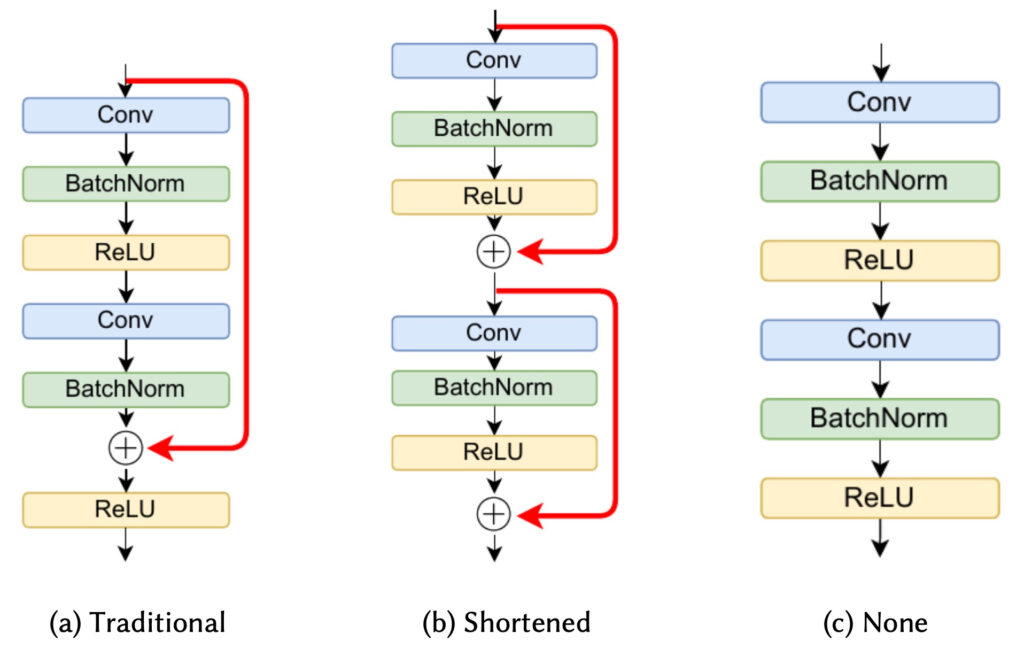Skip connections are valuable for training Residual Neural Networks (ResNets), helping them converge to a better solution faster. But skip connections add overhead to the hardware implementation; they require additional on-chip memory and other resources and larger memory bandwidths. Skip connections are like training wheels on a bicycle – they are helpful for learning but get in the way once the learning process is completed.
Tailor is a hardware-software codesign technique that modifies skip connections to be more hardware efficient while maintaining overall accuracy. Tailor gradually transforms a ResNet to remove or shorten the skip connections while iteratively retraining the network. Tailor can remove skip connections on smaller networks. As the network gets larger, removing the skip connections reduces accuracy. In these cases, Tailor makes the skip connections shorter. Perhaps non-intuitively, this reduces resources as the hardware synthesis tool (hls4ml in this case) will implement these shortened skip connections on local memories, which incurs very little additional overhead.

Tailor started in CSE 237C class in Fall 2020. That was during the height of the pandemic, so the class was totally online. Co-authors Olivia “Liv” Weng, Gabriel Marcano, and Nojan Sheybani were students in this class. Co-author Alireza “Ali” Khodamoradi and Ryan Kastner were course instructors. Ali came up with the idea and pitched it as a potential class project. The project went through several submissions and many rejections, but each time Liv and other co-authors took the reviewer’s comments, added more experiments, and polished the writing. The paper improved and picked up a few other co-authors along the way. Rejections are frustrating but a common (and rarely talked about) aspect of publishing in top venues. It was a journey that resulted in a very strong set of research results.
Links: The Tailor paper in the ACM Transactions on Reconfigurable Technology and Systems, “Davis” summarizes the work nicely, Edge Impulse highlights the project